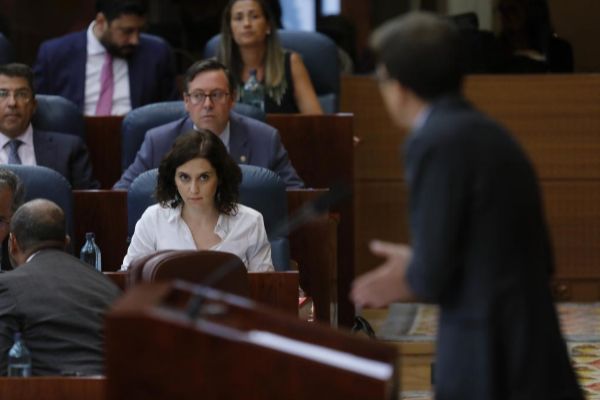The quick reading of his political biography was enough for Iñigo Errejón to panic and resort to insult and haughty contempt for Díaz Ayuso . And the image invented by tertullians and related columnists of an intelligent, well-trained, educated leader who would represent a "non-sectarian" alternative within the populist left collapsed. As if that were possible. Maybe the regional investiture debate was not the right place, but the new president of Madrid showed, as José María Marco has written in La Razón , that she has neither complexes nor the need to "look back", nor does she intend to miss the occasion of Plant ideological battle. And in the aspiration to establish the Bolivarian model here, Errejón was portrayed as one of the most indecent Spanish politicians .
In Podemos. When the new becomes old ( Tecnos ), a collective book directed by Javier Redondo and Manuel Álvarez Tardío , many of the myths that have been created around Errejón are dismantled. In impeccable academic work, Redondo recalls that his differences with Iglesias are not substantial. Only of "opportunity and tacticism". In essence, both "conceived We can as a party movement" with aspirations of totality, that is, with the aim of creating, as Errejón explained in 2015, "a new will that will be the national will", behind which there is hidden a spiritual concept of people whose essence would embody a charismatic leader who would confuse his own desires with those of "the people". As politics "is a dispute that has no end" the demiurge is responsible for "building a town , its cadres and its institutions in the war of positions in the State."
How to achieve it and who should be the one who gave meaning to that redemption sacrifice ended up separating (at least for now) the two leaders. "Neither one nor the other," Redondo recalls, "renounced the use of 'popular pressure.' For Errejón, it is a way to 'build hegemony' and maintain tension in the dispute; for Iglesias, to wear down the institutions."
In 2017, Vistalegre II marked the resounding victory of Iglesias . And the subsequent debugging of the defeated. The movement thus became a Caesarist party. Nothing new if their leaders had not presented themselves in 2014 as representatives of a "new political morality . " As priests of minority sects faced by ritual differences to access the truth, they both work to consolidate Pedro Sánchez to the front of the left. Irremediably, already, populist.
According to the criteria of The Trust Project
Know more- We can
- Iñigo Errejón
- Madrid
- Pedro Sanchez
- 15 M
- Opinion
- Columnists
- Pablo Iglesias
NOTHING WRITTEN In the pool of non-ministers
Liberal Comments If we can yield
Shipwrecks with you no, bug

